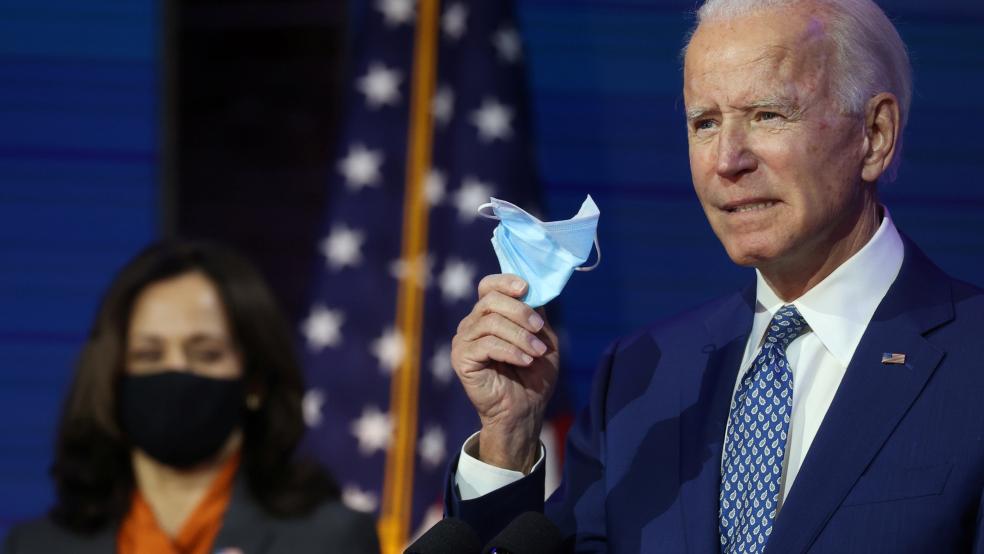The Democratic sweep of the runoff Senate elections in Georgia may not have gotten as much coverage as the storming of the Capitol by a pro-Trump mob Wednesday, but the results will have a powerful influence over legislative politics in the first two years of the Biden administration.
However difficult and contentious the final two weeks of the Trump administration may prove to be, the legislative landscape will change dramatically after January 20, when Joe Biden is sworn in as the 46th president and Democrats take control of the Senate, thereby achieving complete control of the executive and legislative branches of government.
“Buckle up!” Sen. Chuck Schumer (D-NY), who’s set to become Senate Majority Leader, tweeted Wednesday morning, signaling that Democrats intend to speed ahead with their agenda. But any such effort is also likely to face a number of bumps along the way.
Here are some of the issues that are now on the agenda with Democratic control in Washington:
Nominees and judges: The most obvious effect of Democratic control of the Senate is that Biden will be able to fill his Cabinet and other administration posts more easily. Nominees that Republicans might have blocked, including Xavier Becerra for Health and Human Services Secretary and Neera Tanden for director of the Office of Management and Budget, will have an easier time getting confirmed. And Republican Senate leader Mitch McConnell won’t be able to unilaterally block Biden’s appointments to the federal bench, including a potential replacement for 82-year-old Supreme Court Justice Stephen Breyer.
$2,000 relief checks: Although the latest relief bill passed with a direct stimulus payment of $600 for most Americans, Democrats have embraced President Trump’s pre-Christmas call for $2,000 relief checks, and at least one party leader said the payments would be an early focus for lawmakers. “One of the first things that I want to do when our new senators are seated is deliver the $2,000 checks to the American families," Senate Minority Leader Chuck Schumer (D-NY) said Wednesday. There are still plenty of questions about how that effort would play out, though, and it’s not clear that another round of direct payments would have enough support to pass Congress quickly.
Another big stimulus package: Democratic control in Washington makes it much more likely that Congress will pass another stimulus and relief package. Analysts at Goldman Sachs project a package worth $600 billion — about 2.7% of GDP — passing early in the Biden administration.
Reconciliation: One-party control opens the door to reconciliation, a budget process that allows lawmakers to pass budgetary legislation with a simple majority in the Senate, rather than the 60-vote margin required for most bills. This could provide a way for Biden to sign a massive bill — Chris Kreuger of Cowen Research says the package could be worth as much as $4 trillion — that includes a variety of spending measures, possibly including stimulus checks, subsidies for health insurance, green energy initiatives, infrastructure investment and more. The rules of reconciliation require no additional deficit spending after 10 years, so any package would likely include tax increases on the rich and corporations. And economist Michael Pearce of Capital Economics notes that reconciliation, which can only be used once a year, would still present some challenges since it would require every Democratic Senator to go along, or the support of some moderate Republicans who aren’t likely to back tax hikes or other proposals. “[E]ven with unified control of Congress, we strongly doubt Biden will be able to get his most consequential legislative priorities passed,” Pearce told clients.
Climate change: Biden has laid out an ambitious, $2 trillion plan to combat climate change, and lawmakers could attempt to pass it on its own, outside of the reconciliation process. Opposition from Republicans and some conservative Democrats could make that difficult, though, especially in the Senate, where the new president would need to find 60 votes.
Health care: Biden is expected to pursue enhancements to the Affordable Care Act, including more generous subsidies and the creation of a public option. Additionally, lawmakers could pass legislation that would neutralize the Republican-led lawsuit seeking to invalidate the ACA, which the Supreme Court is expected to rule on this spring.
Senate committees: Democrats will take the reins of committees in the Senate. Potential leaders include Sens. Ron Wyden (OR) for finance, Patty Murray (WA) for health, Dick Durbin (IL) for judiciary, and Bernie Sanders (I-VT) for budget.




